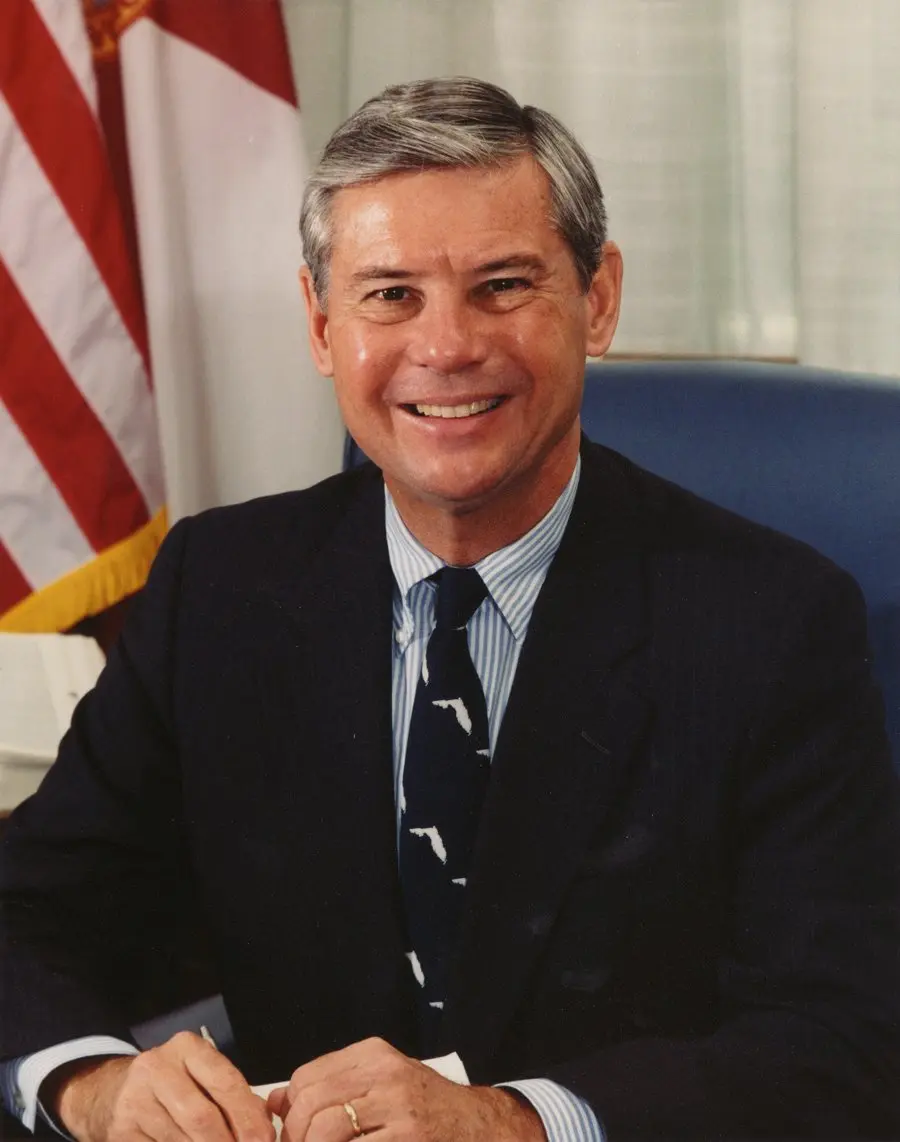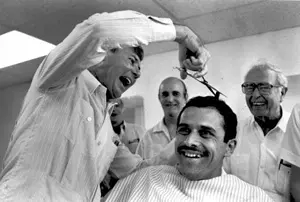Senator Bob Graham has been called “the hardest working man in politics.”
Graham’s 38 years of public service included two terms as Governor of Florida from 1979 to 1987, and he represented Florida in the United States Senate from 1987 to 2005.
He famously spent more than 400 days working other people’s jobs, including days as a journalist, a fisherman, a construction worker, a truck driver, a barber, and in many other occupations.
Graham started his tradition of “work days” in 1974, while he was serving in the Florida Senate.
“I was chairman of the State Senate Education Committee, and I had been in some classrooms where I didn’t think civics was being taught very well,” says Graham.
“I mentioned that to some civics teachers and they said ‘the only way you can find out what’s going on is to actually go in a classroom.’ So, I accepted and ended up teaching 18 weeks of high school civics. It was a wonderful experience. I did, in fact, learn a lot about what was going on in a modern high school, but the most important thing I learned was the difference between learning by somebody giving you a lecture or reading it in a textbook, and learning by actually doing it.”
Graham was inspired to learn about the employment experiences of other people by actually doing their jobs. He couldn’t dedicate 18 weeks to each position as he had with the teaching job, but he did spend one full day in 408 different jobs over a 30 year period.
His willingness to experience the lives of other people, if only for a day, helped to make Graham a very popular politician. He left office as governor with an 83% approval rating.
As Governor of Florida, Graham focused his efforts on education, the environment, and jobs, with significant results.
“For the first time in the state’s history we saw our education programs begin to move toward, and in the case of our university system, actually reach the top quartile in the country,” says Graham.
“In the environment, we had a particularly aggressive program of land acquisition, added hundreds of thousands of acres of state ownership, which now are some of our most valuable environmental and recreational lands. In economic development, as an indicator of our success, for the first time in Florida history Floridians earned more money on average than did the average American.”
Following two successful terms as governor, Graham spent 18 years in the United States Senate. He served 10 years on the Senate Intelligence Committee, both before and after the terrorist attacks of September 11, 2001. Graham was one of the voices raised in opposition to the subsequent war in Iraq, which he says was one of his proudest moments as a senator.
“I wasn’t proud at the outcome, because I was fairly convinced that it was not going to be a good outcome because we had been led into this war by false information,” says Graham, referring to the unsubstantiated claim that Iraqi leader Saddam Hussein possessed weapons of mass destruction.
“The people who gave us that information knew, or should have known, that it was false,” Graham says.
Since leaving the U.S. Senate in 2005, Graham’s primary focus has been on developing the Bob Graham Center for Public Service at the University of Florida in Gainesville.
“My passion since I retired from the senate has been citizenship,” says Graham. “Unfortunately, by almost every indicator—voting, participation in civic organizations, joining with neighbors to solve local problems—citizenship has been in decline in America and in Florida. The purpose of the center is to try to understand that decline and then to reverse it.”
Graham learned about citizenship at a very early age. His father, Ernest R. Graham, was a cattleman who also served in elected office, inspiring his son’s political aspirations.
“I happen to have been born the same week that he was first elected to the Florida State Senate, so I grew up in a political environment,” says Graham.
“He was very influential is an extremely positive way. He had high values and he honored public service, and I tried to be faithful to his principles.”

